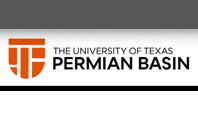Graduate Theses
Date of Award
5-2020
Document Type
Thesis
Degree Name
Master of Science (MS)
Department
Biology
Supervisory Committee Chair
Athenia L. Oldham, Ph.D.
Second Advisor
Douglas P. Henderson, Ph.D.
Third Advisor
Gae E. Kovalick, Ph.D.
Abstract
This study characterized the growth of bacteria isolated from ballast tank fluids in hexadecane, petroleum, plant, and algae-derived fuels. The study was performed to explore the capacity of ballast tank isolates to survive and grow within fuels that may be stored within ballast tanks. Results of the hexadecane analysis indicated that most isolates had higher viable cell counts in media supplemented with hexadecane. Members of Alteromonas, Pseudoalteromonas, and a single Brevundimonas species had viable cell counts that were one or several orders ofmagnitude greater than that of controls. Results offuel analysis indicated higher viable cell counts in pure JP-5 and F-76 petroleum, as well as a modest growth increase in camelina-based JP-5 biofuel for members of Alteromonas. Bacillus aquimaris TF-12 and the unclassified isolate, SD32, had a pronounced decrease in growth under all the fuel conditions, with the sole exception of elevated growth in hexadecane. Halomonas axialensis Althfl demonstrated substantial growth in all the tested conditions, especially in JP-5 camelina and F-76 algal biofuels, while the unclassified isolate, denoted as (-)ve, had significantly decreased bacterial growth in pure JP-5 and F-76 petroleum and elevated growth in both biofuels. Given the diverse growth trends of the tested isolates, future studies will include GC-MS analysis to directly measure hydrocarbon utilization.
Recommended Citation
Yashchenko, Alex, "Hexadecane Petroleum, and Biofuel Utilization in Marine Bacteria Isolated from Ballast Tanks" (2020). Graduate Theses. 80.
https://falconcommons.utpb.edu/utpb-cas/80
Included in
Algae Commons, Bacteria Commons, Biochemistry, Biophysics, and Structural Biology Commons, Biotechnology Commons, Botany Commons, Business Commons, Other Pharmacology, Toxicology and Environmental Health Commons, Research Methods in Life Sciences Commons


Comments
TP339.Y37 2020